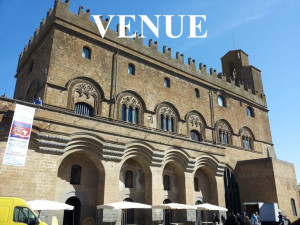Contents
 Quality of life in European cities and in most of the world is decreasing due to an increase of pollution levels, increase of heat islands, decreased biodiversity, flooding and extreme events also related to climate change. This can have detrimental effects for human health and well-being. At the same time cities are a large source of carbon and only a few attempts are underway to improve carbon sequestration at local level.
Quality of life in European cities and in most of the world is decreasing due to an increase of pollution levels, increase of heat islands, decreased biodiversity, flooding and extreme events also related to climate change. This can have detrimental effects for human health and well-being. At the same time cities are a large source of carbon and only a few attempts are underway to improve carbon sequestration at local level.
Green Infrastructure (GI) with particular focus on Urban Forests can contribute to the improvement of the urban environment through a number of mitigation actions. This is especially valid for the tree component of vegetation due to larger biomass and extended canopies.
The improvement of environmental and social/health conditions will lead to a long-term improvement in health conditions of populations, because of an improved urban environment (clean air, less polluting elements, less noise pollution) and better quality of life (more leisure opportunities, less stress, increasing social cohesion).
We expect people living/working in urban areas can take advantage of innovative Nature Based Solutions (NBS) which have GI as a main component, promoting them to other citizens and to other cities, along the lines of large investments such as the H2020 framework programme on this topic.
New models of governance for urban areas will also bring new ways of managing them, using new forms of rights and duties divided between owners and managers, as well as new forms of management. This can lead to decreased costs for planning and management and better efficiency of areas, which can contribute to economic growth.
The main objective of the Conference is to show how a trans-disciplinary approach to urban planning based on GI as NBS will enable maximization Ecosystem Services provision making future cities more resilient and sustainable.
The Conference will bring together urban foresters, landscape architects, arborists, plant physiologists, ecologists, economists, epidemiologists, sociologists, students, urban planners and managers and enable different communities such as researchers and academics, practitioners, policy makers, administrators, and the private sector to exchange knowledge and insights.
The Conference will be organised in Plenary sessions and in 12 Parallel sessions which will include both oral presentations and poster exhibitions.
The foreseen parallel sessions are:
1 Implications of GI on air quality
2 GI for water and soil management and remediation
3 GI for climate regulation and climate change resilience
4 Biodiversity and ecological implications of GI
5 Health focused GI – enabling healthy and active lives
6 Engaging communities and partners to participate in the co-production of GI
7 New governance and funding models for GI
8 Science-policy implications of GI
9 Economic impact of GI for resilient and sustainable cities
10 GI in future urban planning
11 Assessing and mapping Ecosystem Services generated by urban GI
12 Sustainable management of GI

